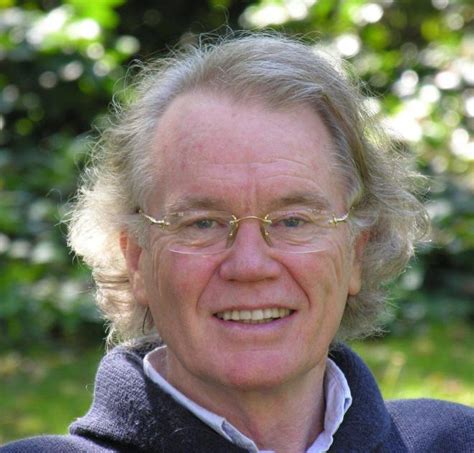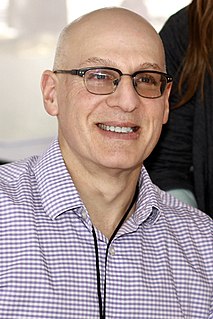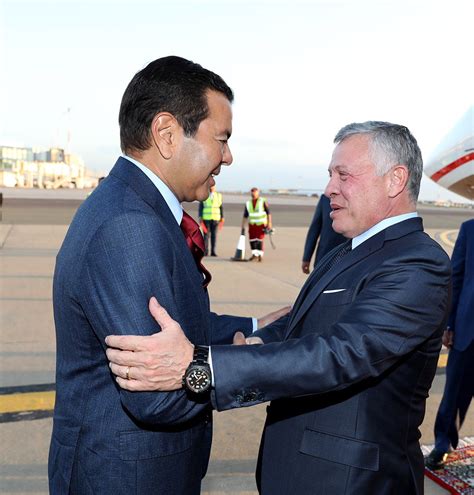A Quote by Terry Hayes
I've read and traveled a lot in the Middle East, and I built on eyewitness accounts of horrific executions that would shape a boy's character and beliefs if he watched his father die that way. These are the stuff of which nightmares are made.
Related Quotes
In the Middle East, America has spent as of four weeks ago $6 trillion. Think of it. And, by the way, the Middle East is in what - I mean, it's not even close - it's in much worse shape than it was 15 years ago. If our Presidents would have gone to the beach for 15 years, we would be in much better shape than we are right now, that I can tell you.
A bronze plaque read: GAIUS PLINIUS CAECILIUS SECUNDUS Dan made a face. "Get a load of the guy with the funny name." "I think that's Pliny the younger, the famous Roman writer," Amy supplied. She bent down to read the English portion of the tablet. "Right. In A.D. 79, Pliny chronicled the destruction of Pompeii by the eruption of Mount Vesuvius. It's one of the earliest eyewitness accounts of a major disaster." Dan yawned. "Doesn't this remind you of the clue hunt? You know–you telling me a bunch of boring stuff, and me not listening?
Sherman made the terrible discovery that men make about their fathers sooner or later... that the man before him was not an aging father but a boy, a boy much like himself, a boy who grew up and had a child of his own and, as best he could, out of a sense of duty and, perhaps love, adopted a role called Being a Father so that his child would have something mythical and infinitely important: a Protector, who would keep a lid on all the chaotic and catastrophic possibilities of life. ~Tom Wolfe
There's kind of a hidden point which isn't being brought out, and that is that it is inconceivable that the U.S. would permit democracy in the Middle East, and for a very simple reason. Just take a look at polls of Arab public opinion. They exist. You can't find them in the press, but they exist from prestigious polling agencies. Released by major institutions. And what they show is that if there was democracy in the Middle East, the entire U.S. program for domination of the Middle East would be down the tube.
When the father dies, he writes, the son becomes his own father and his own son. He looks at is son and sees himself in the face of the boy. He imagines what the boy sees when he looks at him and finds himself becoming his own father. Inexplicably, he is moved by this. It is not just the sight of the boy that moves him, not even the thought of standing inside his father, but what he sees in the boy of his own vanished past. It is a nostalgia for his own life that he feels, perhaps, a memory of his own boyhood as a son to his father.
There are going to be a lot of questions, not just in my country, but across the Middle East. Is Israel going to continue to be "Fortress Israel"? Or, as we all hope, become accepted into the neighborhood, which I believe is the only way we can move forward in harmony. And no matter what's happening in the Middle East - the Arab Spring, et cetera, the economic challenges, high rates of unemployment - the emotional, critical issue is always the Israeli-Palestinian one.
The life-history of the individual is first and foremost an accommodation to the patterns and standards traditionally handed down in his community. From the moment of his birth the customs into which he is born shape his experience and behavior. By the time he can talk, he is the little creature of his culture, and by the time he is grown and able to take part in its activities, its habits are his habits, its beliefs his beliefs, its impossibilities his impossibilities.
'East of Eden' is an important story for me. It's about a kid that's misunderstood and feels like he's not loved by his father. It's a very father-son kind of story, and it's not until the end that they sort of make up. I like that because every boy has trouble with his father, so it's very relatable.
I think President Barack Obama came to office with quite fundamental understandings in his mind about what's possible and what's not possible in the Middle East. The first, I would say, revolutionary breakthrough that he introduced is that the Middle East doesn't matter to American geostrategy as much as we think.






































